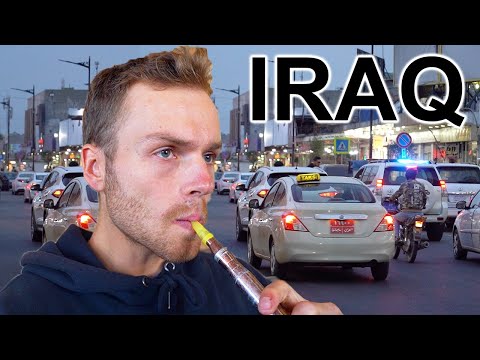
Traveling to Iraq remains a contentious issue for many potential tourists. The country’s recent history is marked by conflicts that have left many areas unstable and unsafe. However, parts of Iraq, particularly the Kurdistan region, offer a different story—one of relative peace, burgeoning tourism infrastructure, and rich historical attractions. This article explores the safety concerns associated with traveling to Iraq, focusing on both the broader country and the semi-autonomous region of Kurdistan, while offering practical advice for those considering a visit.
#### Understanding Iraq’s Safety Landscape
Iraq is a complex tapestry of cultures, histories, and geographies but has been overshadowed by violence and instability due to various conflicts. Despite significant progress in recent years, challenges remain:
1. **Security Concerns**: Central and southern Iraq have been the locus of sectarian violence and terrorism, impacting their safety for tourists.
2. **Political Instability**: The Iraqi government often experiences periods of political unrest, which can lead to unpredictable situations.
3. **Infrastructure Issues**: Years of conflict have degraded much of Iraq’s infrastructure which can affect travel plans unpredictably.
Given the situation in these parts of Iraq, it is generally advised that tourists avoid non-essential travel here unless participating in guided tours or having strong local connections who understand the current landscape.
#### Exploring Kurdistan: A Safer Alternative
In contrast to some other regions in Iraq, Iraqi Kurdistan has enjoyed relative stability and security since 2003 due to its autonomous governance. It’s important for travelers to distinguish between this region and other parts of Iraq:
1. **Entry Requirements**: Travelers often can enter Kurdistan directly via flights to Erbil or Sulaymaniyah without an Iraqi visa if they do not intend to travel outside the Kurdish regions.
2. **Safety Measures**: Kurdish security forces effectively control internal security in the region which has helped maintain a safer environment for visitors.
3. **Tourist Facilities**: Kurdistan has developed its tourism sector significantly, providing better accommodations and services than found elsewhere in Iraq.
#### Practical Tips for Traveling Safely in Iraqi Kurdistan
For those who decide on visiting Iraqi Kurdistan because of its comparative stability and rich cultural history:
1. **Stay Informed**: Always consult your government’s travel advisory before planning your trip and during your stay.
2. **Local Guidance**: Employing local guides not only provides employment opportunities but also ensures you venture only into safe areas known by locals.
3. **Respect Cultural Norms**: The Kurdish culture is hospitable but conservative; showing respect towards local customs will aid positive interactions.
4. **Travel Insurance**: Ensure that your travel insurance covers destinations like Kurdish Iraq; many standard policies exclude war-prone regions.
5. **Secure Transportation**: Use reputable transportation services recommended by hotels or tour operators familiar with regional security dynamics.
6. **Communication Preparedness**: Have means to stay connected either through international roaming or by purchasing a local SIM card upon arrival.
#### Major Attractions
Despite concerns about safety in broader Iraq, there are numerous attractions safely accessible within Kurdish borders:
– **Erbil Citadel**, one of the oldest continuously inhabited settlements in the world.
– **Sulaymaniyah Museum** offers insights into Kurdish history pre-and post-Islamization.
– **Gali Ali Bag Waterfall** near Halabja offers stunning natural scenery alongside poignant historical sites related to recent tragic events.
#### Conclusion
While much of Iraq still grapples with significant security issues making it unsuitable for casual tourism, Iraqi Kurdistan presents an intriguing alternative for intrepid travelers seeking new cultural vistas amid relatively safer environs. With proper precautions and preparations—prioritizing safety through informed choices—travelers can experience a part of this historically rich nation often overlooked amidst regional turmoil.
